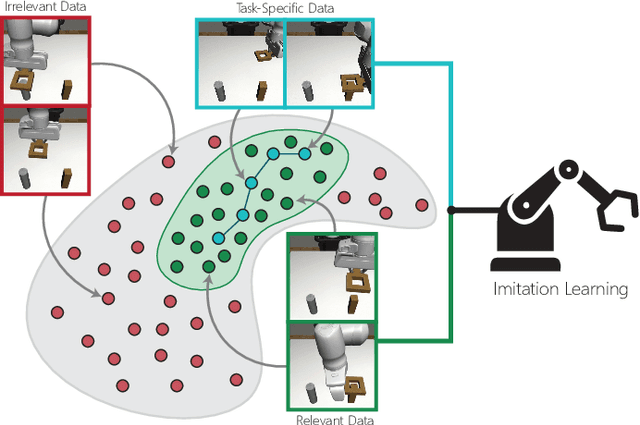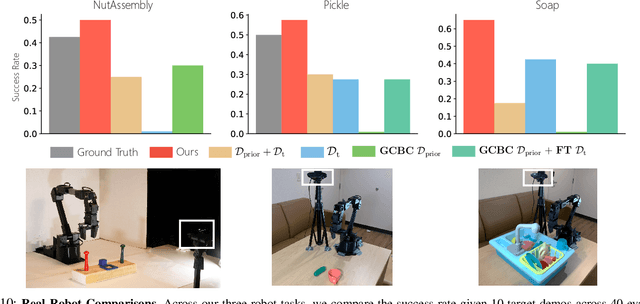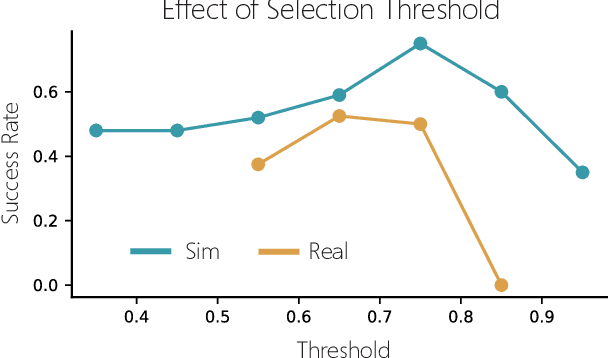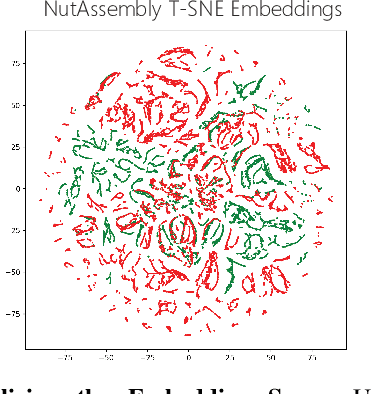Behavior Retrieval: Few-Shot Imitation Learning by Querying Unlabeled Datasets
Paper and Code
Apr 18, 2023



Enabling robots to learn novel visuomotor skills in a data-efficient manner remains an unsolved problem with myriad challenges. A popular paradigm for tackling this problem is through leveraging large unlabeled datasets that have many behaviors in them and then adapting a policy to a specific task using a small amount of task-specific human supervision (i.e. interventions or demonstrations). However, how best to leverage the narrow task-specific supervision and balance it with offline data remains an open question. Our key insight in this work is that task-specific data not only provides new data for an agent to train on but can also inform the type of prior data the agent should use for learning. Concretely, we propose a simple approach that uses a small amount of downstream expert data to selectively query relevant behaviors from an offline, unlabeled dataset (including many sub-optimal behaviors). The agent is then jointly trained on the expert and queried data. We observe that our method learns to query only the relevant transitions to the task, filtering out sub-optimal or task-irrelevant data. By doing so, it is able to learn more effectively from the mix of task-specific and offline data compared to naively mixing the data or only using the task-specific data. Furthermore, we find that our simple querying approach outperforms more complex goal-conditioned methods by 20% across simulated and real robotic manipulation tasks from images. See https://sites.google.com/view/behaviorretrieval for videos and code.
 Add to Chrome
Add to Chrome Add to Firefox
Add to Firefox Add to Edge
Add to Edge